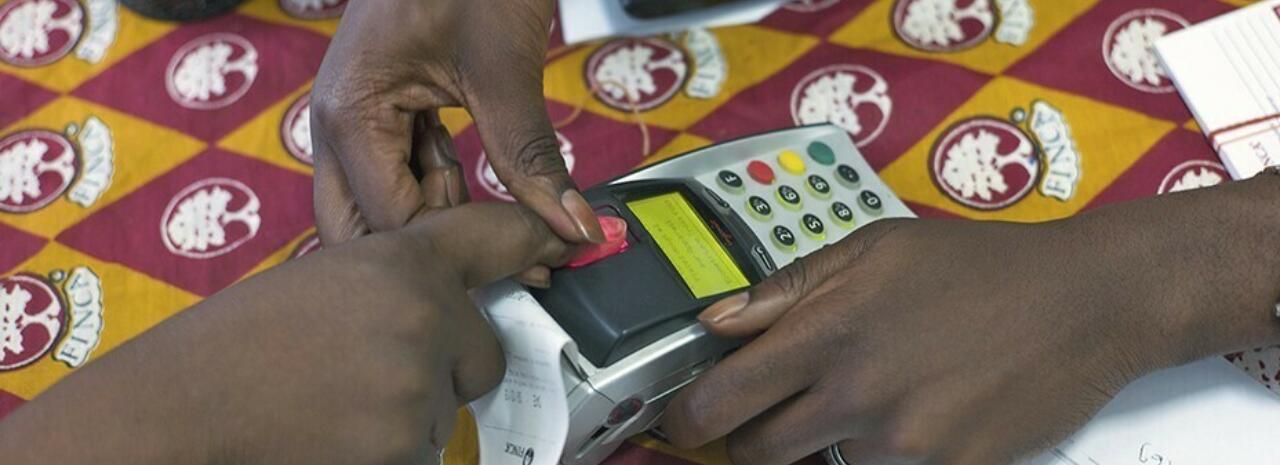
Driving adoption of payment services in rural Sierra Leone
As in many small and low-income countries, financial services in Sierra Leone are mainly used by wealthier customers in urban and peri-urban areas. Limited use of financial services is why cash use remains high and why the financial services sector remains so small.
In 2018 only about 20% of the population had a financial account with a formal institution or mobile money provider, compared with the average of 43% in sub-Saharan Africa and 35% in low-income countries. Only 13% of the economically active population is served by financial institutions (and a further 6% covered by mobile money), leaving 87.4% of the economically active population, which is about 3.5 million people, underserved or unserved.
To increase financial inclusion and promote financial sector development, the Bank of Sierra Leone launched a four-year programme to accelerate access to financial services. The National Strategy for Financial Inclusion was launched in 2016, and one of its priorities was ensuring interoperability among financial services providers. While the Central Bank has made efforts to modernise payments by developing a real-time gross settlement system (RTGS) and an automated clearing house (ACH), the country still does not have a retail switch for low-value payments.
In 2019, the Government of Sierra Leone received a loan of USD 12 million from the International Development Association (IDA)/the World Bank to help realise its financial inclusion strategy.
The programme aims to establish a retail payments switch and increase digital payments. The programme seeks to increase financial inclusion through a payment switch that will enhance interoperability of digital payments. Improving the payments infrastructure should contribute to a rising level of financial inclusion. The payment services give consumers a better reason to have an account with a financial service provider and generate balances at financial institutions that can be on-lent to provide the loans that consumers and businesses need to expand and invest.
Genesis was commissioned by the Ministry of Finance to assist in the design and implementation of rural payments connectivity solutions in conjunction with the deployment of a retail payments switch.
The team leveraged on its expertise in payments system and low-income countries and developed 10 key principles for successful retail payment systems in low-income countries. Through these principles the team identified the actions that needed to be taken by payment markets participants to increase the use of digital payments and the payment system. It considers who should be connected to the national switch, and how to grow the volume and value of payments in the market, particularly in the rural areas.
The team unpacked the challenges in the use of payments products and services that had been identified in other low-income countries and the connectivity issues experienced by payment service providers and the users of payment services in the market. The team then shared several recommendations, with an implementation plan as well as a budget on how to increase the use of payment solutions in rural areas.
Through the adoption of these principles, and with the support of the industry, the Central Bank and development partners, Sierra Leone can transform the use of payment services in the market to the benefit of its citizens and become a benchmark of what can be achieved in other small low-income countries.